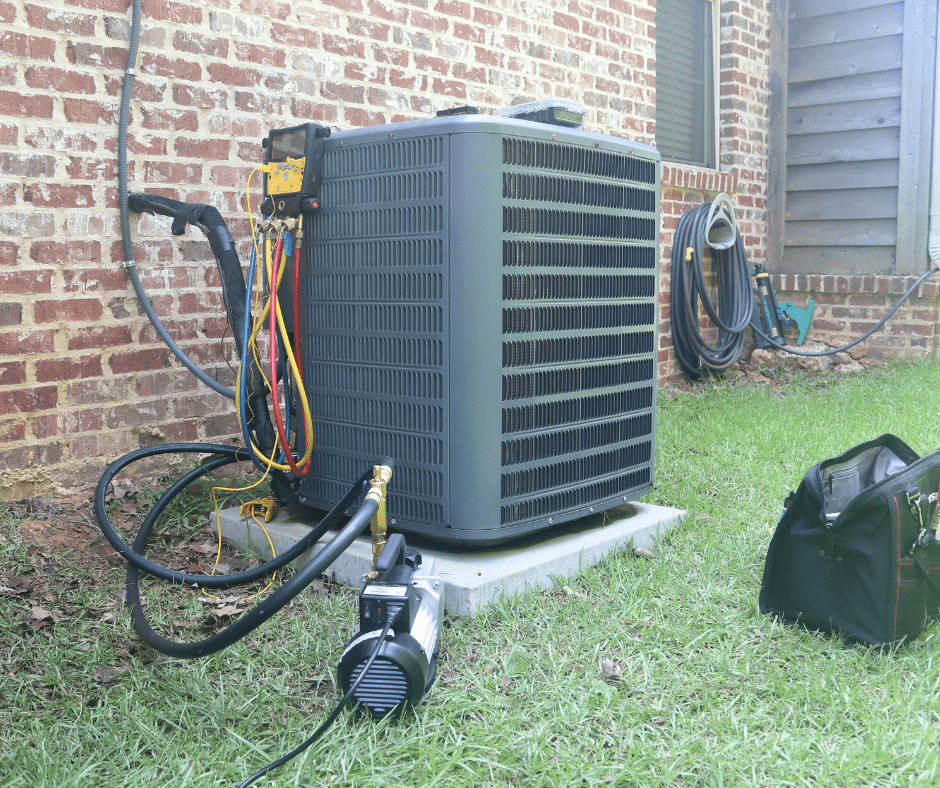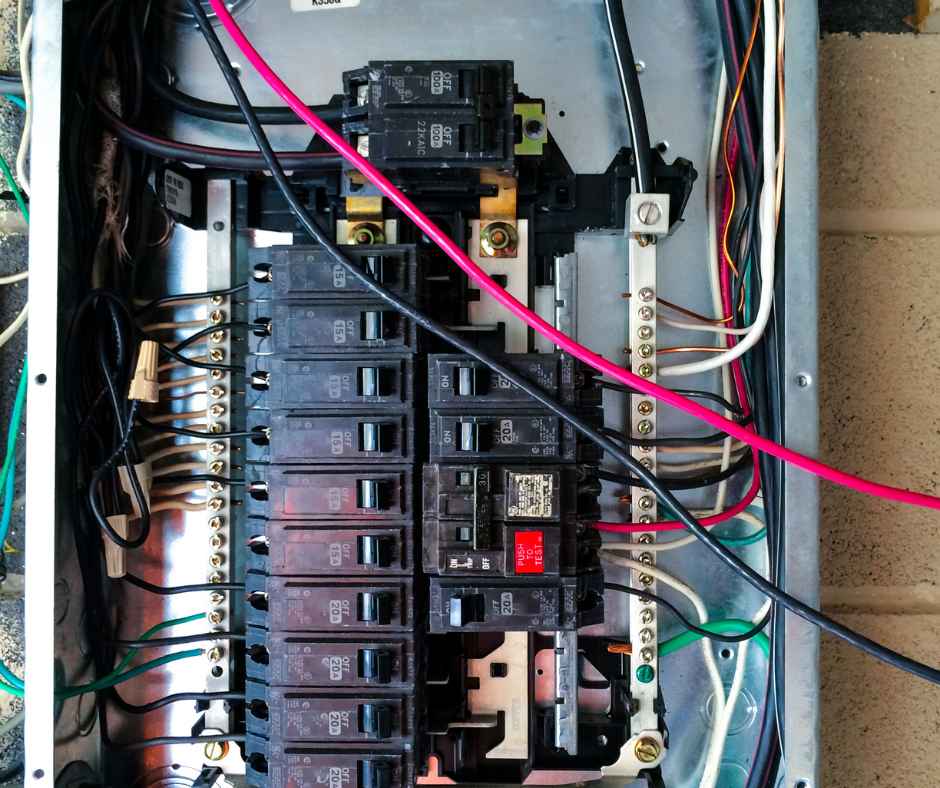Mega Furnace Tune Up FOR $99! BOOK NOW
How Atlanta’s Mild Winters Still Strain Heating Systems During Cold Snaps

Atlanta’s winters may seem gentle, but heating systems still face hidden challenges. Most of the season brings comfortable daytime temperatures, yet sudden cold snaps can cause furnaces and heat pumps to work harder than they have in weeks. Those quick drops into freezing territory often reveal weak components or neglected maintenance.
When a system sits idle through mild weather, it can struggle to perform efficiently when temperatures fall. Belts tighten, filters clog, and older units strain to keep up. A 40-degree temperature swing in a single day can push even well-maintained systems to their limits.
Mild winters may keep heating costs lower overall, but they also create unpredictable stress on your system. In this blog, we’ll look at how Atlanta’s shifting winter weather impacts heating systems and what homeowners can do to stay warm and avoid costly breakdowns.
What Makes Atlanta’s Winter Weather So Unpredictable?
Atlanta’s winters are known for their variety. One day might bring sunshine and 60-degree highs, while the next could dip below freezing with frost on the ground. This constant temperature swing is what makes the season unpredictable and tough on heating systems.
The city’s climate sits in a unique zone between humid subtropical and temperate conditions. That means warm, moist air often meets sudden blasts of cold from the north. When these fronts collide, temperatures can drop sharply overnight. Even a brief cold snap can cause homes that were comfortable one day to feel chilly the next morning.
Humidity also plays a major role. Moist air makes mild days feel warmer, but it also causes homes to lose heat more quickly when the temperature drops. During a cold spell, that combination forces heating systems to cycle on more frequently and run longer than usual.
In short:
- Temperature swings stress both furnaces and heat pumps.
- Humidity changes affect comfort and system efficiency.
- Quick shifts between warm and cold conditions reveal weak or unmaintained components.
These weather patterns are part of what makes Atlanta’s climate appealing, but they also mean homeowners need to be proactive about keeping heating systems ready for anything.
How Temperature Fluctuations Affect Heating System Performance
Atlanta’s frequent swings between warm afternoons and cold nights create more strain on heating systems than many homeowners realize. When temperatures rise and fall quickly, furnaces and heat pumps must adjust constantly to maintain indoor comfort. This on-and-off cycling can wear down essential components and reduce efficiency over time.
For furnaces, the biggest challenge comes from repeated ignition and shutdown cycles. Each time the system restarts, the blower motor and ignition components experience extra wear. This repeated demand shortens the lifespan of parts and can lead to uneven heating or slower warm-up times.
Heat pumps face their own set of problems. These systems work by moving heat rather than generating it. During mild weather, they run efficiently, but when a sudden cold snap hits, they must work harder to extract warmth from frigid air. This increased workload uses more energy and may trigger auxiliary heat, driving up utility bills.
Temperature fluctuations can cause:
- Increased wear on motors, fans, and ignition systems
- Reduced system efficiency and higher energy costs
- Inconsistent comfort or cold spots around the home
- A greater risk of breakdowns during peak cold periods
Because Atlanta’s cold spells are short but intense, homeowners sometimes underestimate their impact. Regular maintenance and seasonal tune-ups are the best defense against the effects of these rapid temperature swings.
Why Cold Snaps Expose Hidden Problems in Heating Systems
For most of the winter, Atlanta’s heating systems don’t have to work very hard. That light workload can mask small issues that go unnoticed for weeks or even months. When a cold snap arrives and the system suddenly runs nonstop, those hidden problems become impossible to ignore.
Even a short stretch of freezing temperatures can strain components that have been idle or only lightly used. Filters may be clogged, belts may have stiffened, or sensors might not respond properly after sitting dormant. Once the system is pushed to its limit, performance drops quickly.
Common heating problems that appear during cold snaps include:
- Clogged or dirty filters: Restrict airflow and force the system to overheat or cycle off prematurely.
- Worn or loose belts: Create squealing sounds and reduce efficiency.
- Dirty burners or coils: Lead to uneven heating or delayed ignition.
- Failing thermostats: Cause inaccurate temperature readings or short cycling.
- Blocked vents or registers: Prevent rooms from warming evenly.
These problems often start small but grow worse under pressure. When temperatures fall, your heating system cannot afford reduced airflow or weakened components.
Scheduling routine maintenance before the first cold spell helps catch these issues early. Professional technicians can clean internal components, replace worn parts, and ensure your system runs smoothly when Atlanta’s temperatures take an unexpected dip.
The Role of Insulation and Air Leaks in System Strain
Even the best heating system can struggle if your home isn’t properly insulated. Many Atlanta houses, especially older ones, lose heat through gaps, cracks, and thin insulation. When warm air escapes and cold air seeps in, your furnace or heat pump must run longer to maintain a comfortable temperature.
During sudden cold snaps, those leaks become even more noticeable. A home that feels cozy on a mild day can quickly grow chilly once temperatures drop. If your heating system seems to run constantly or certain rooms never warm up, poor insulation or air leaks may be the cause.
Common sources of heat loss include:
- Gaps around doors and windows
- Unsealed attic or crawl space openings
- Poorly insulated ductwork
- Outdated or insufficient wall insulation
Simple steps to reduce strain on your system:
- Add weatherstripping to windows and doors
- Seal air leaks with caulk or foam insulation
- Insulate exposed ducts in attics or basements
- Schedule a home energy audit to identify weak spots
Improving insulation not only keeps your home warmer but also lowers energy bills and reduces wear on your heating system. A well-sealed home allows your HVAC equipment to work efficiently through every temperature swing Atlanta’s winter brings.
Preventive Maintenance for Atlanta Homeowners
Regular heating maintenance is the most effective way to keep heating systems running efficiently, especially in a city like Atlanta, where the weather can shift overnight. Preventive care ensures your system performs at its best when temperatures drop and helps prevent emergency breakdowns during sudden cold snaps.
Even short bursts of freezing weather can push an unmaintained system beyond its limits. Professional tune-ups not only catch potential issues early but also improve efficiency and comfort throughout the season.
Key benefits of preventive HVAC maintenance:
- Extends the lifespan of furnaces and heat pumps
- Reduces the risk of costly repairs or mid-season failures
- Improves indoor air quality through cleaner filters and coils
- Keeps energy bills lower by maximizing efficiency
Simple maintenance steps for homeowners:
- Replace air filters every one to three months
- Keep vents and registers open and free of obstructions
- Clear leaves or debris away from outdoor units
- Listen for unusual noises when the system runs
- Schedule a professional tune-up in early fall before cold weather begins
A seasonal inspection from an HVAC professional ensures every part of your heating system is operating safely and efficiently. By staying proactive, Atlanta homeowners can enjoy steady warmth and peace of mind all winter long.
Long-Term Benefits of Proactive Heating Care
A well-maintained heating system does more than keep your home comfortable during cold snaps. Routine care delivers lasting benefits that protect both your comfort and your investment. For Atlanta homeowners, where temperature swings are unpredictable, consistent upkeep can make the difference between a quick warm-up and an unexpected repair call.
Long-term advantages of regular maintenance include:
- Lower energy costs: Clean filters, calibrated thermostats, and well-lubricated parts help your system run efficiently and use less energy.
- Fewer breakdowns: Early detection of worn or failing components prevents emergency repairs when you need heat most.
- Improved indoor air quality: Removing dust, debris, and buildup from your system helps reduce allergens and keeps the air cleaner.
- Longer equipment lifespan: A system that runs smoothly experiences less wear, helping it last years longer than neglected units.
- Consistent comfort: Balanced airflow and reliable heating prevent cold spots and uneven temperatures.
Proactive heating care not only enhances efficiency but also adds value to your home. With routine maintenance and timely repairs, you can count on dependable performance through every Atlanta winter, no matter how mild or cold it turns out to be.
Staying Comfortable When the Temperature Drops
Atlanta’s winters may be mild, but that doesn’t mean your heating system can relax. Sudden cold snaps put extra pressure on furnaces and heat pumps that haven’t been running regularly. Without proper maintenance, these short bursts of freezing weather can quickly expose worn parts, airflow problems, or efficiency issues.
The best way to stay ahead of Atlanta’s unpredictable climate is through preparation. Regular tune-ups, filter changes, and inspections keep your system ready for every temperature swing. Proactive care ensures your home stays warm, your system runs efficiently, and your comfort never skips a beat.
Contact R.S. Andrews today to schedule professional heating maintenance or repair. Our trusted Atlanta HVAC team is here to help you stay comfortable, energy-efficient, and worry-free, no matter how cold it gets outside.
Frequently Asked Questions About Atlanta Heating Systems and Cold Weather Performance
Why does my heating system struggle when temperatures drop suddenly?
Rapid temperature changes make your system work harder to maintain comfort. When temperatures fall quickly, components like motors, belts, and compressors experience more stress, especially if the system hasn’t been running regularly.
Should I turn off my heat pump during extreme cold?
No. Modern heat pumps are designed to work in cold weather, but they often rely on auxiliary heat for extra support. If your system isn’t keeping up, it may need a tune-up or filter replacement to improve performance.
How often should I schedule heating maintenance in Atlanta?
It’s best to schedule maintenance once a year in early fall. This timing ensures your system is ready before the first cold snap and helps prevent mid-season breakdowns.
What’s the most common cause of furnace problems during a cold snap?
Clogged air filters are one of the top causes of performance issues. Restricted airflow makes your system overheat and shut down prematurely. Checking and replacing filters regularly helps prevent this problem.
How can I improve my home’s energy efficiency during winter?
Seal air leaks around windows and doors, add insulation to attics or crawl spaces, and use a programmable thermostat to manage heating cycles. Regular HVAC maintenance also keeps your system running efficiently all season.
Heater on the fritz? Frustrated with plumbing problems? R.S. Andrews is just a call away!





